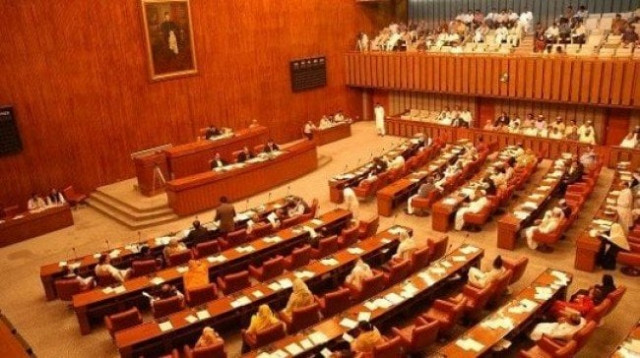Senate committee rejects 1% increase in GST
The Senate's Standing Committee for Finance has rejected a one per cent increase in general sales tax (GST).

The Senate's Standing Committee for Finance has rejected a one per cent increase in general sales tax (GST).
Other recommendations proposed by the committee included reduction of foreign visits and number of delegation members on foreign tours.
The committee also proposed the running of all organisations under private-public partnerships. It suggested a reorganisation of WAPDA, PEPCO, PSM, PIA and Pakistan Railways.
The committee suggested an increase of 60 per cent in salaries of government employees on grade 1 to 16.
The committee members said that the minimum monthly wage of labourers should be raised up to Rs9,000.
For further proceedings, the Senate forwarded the proposals to the National Assembly.


















COMMENTS
Comments are moderated and generally will be posted if they are on-topic and not abusive.
For more information, please see our Comments FAQ